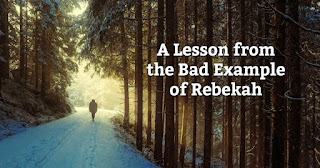The LORD is merciful and
gracious, slow to anger and abounding in steadfast love. He will not always
chide, nor will he keep his anger forever. He does not deal with us according
to our sins, nor repay us according to our iniquities. For as high as the
heavens are above the earth, so great is his steadfast love toward those who
fear him; as far as the east is from the west, so far does he remove our
transgressions from us. As a father shows compassion to his children, so the
LORD shows compassion to those who fear him. For he knows our frame; he remembers
that we are dust.
(Psalm 103:8-14 ESV).
In the
Old Testament we read of a man named Job who loses nearly everything but his
life to prove that his righteousness was not a result of his good behavior. Job’s
friends accuse him, saying he must have brought this on himself by sinning
against God. Job even asks God, “If I have sinned, what have I done to you? Why
have you made me your target?” (Job 7:20). And God responds by showing him that
all these things ultimately bring him good. This is what the psalmist means
when he declares that God “does not treat us as our sins deserve.” Instead, God
uses a sin-removal policy based on his everlasting love: God pays the price of our sin.
The answer
to the question of “why?” is simply not as important as that of “who?” If it is
God who ultimately directs and ordains our journey, then we can know the truth
of the Apostle Paul’s answer to “why?” It will always be for the working
together of our good (cf. Romans 8:28). Heaven does turn toward you when all
the world turns against you!
















